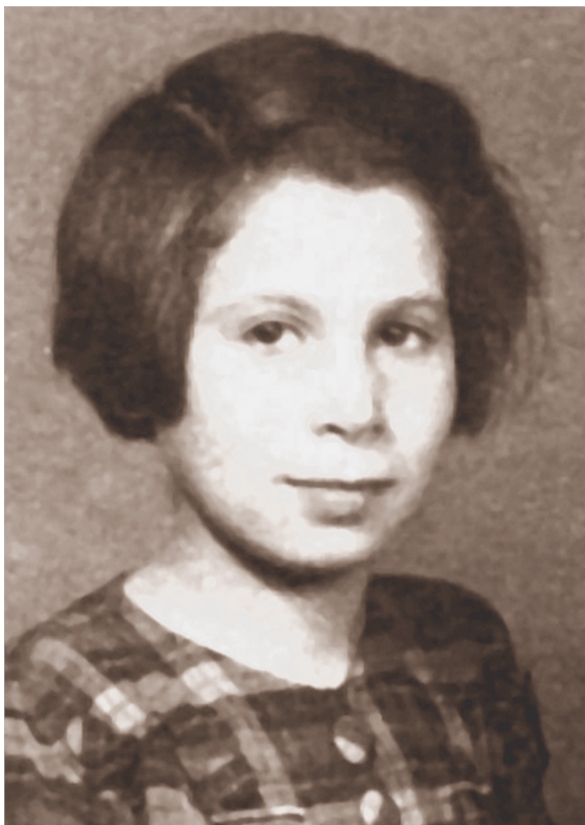When I was almost 6 years old, sometime around 1939, we went to Rozwadow, Poland to attend a family wedding. Metz was near the German border and there were greater restrictions taking place against Jews. My family thought Poland would be a better place for us.
We were living in Rozwadow. The Germans invaded and in 1942, the Germans created a ghetto there. Families would disappear from one day to another. Gentile neighbors had taken over the entire apartment building. I was 8 years old and remember seeing the fear in my parents’ faces. I remember neighbors threatening us in Polish; we fled to Monasterzyska, the town in the Ukraine where my mother was born and where we had family. It was under Russian control however soon the Germans came in and established a ghetto. Entire families were taken away. My very religious grandfather and his family were taken away to do hard labor and were never seen again. We were then taken to Buczacz and then to Borki.
In the ghettos, we dug bunkers under the floor to hide from the Germans during Aktionen, actions, or round-ups. My parents used cups to dig small hiding places under the floor. The Germans would scream, “Raus, raus, Juden raus” (Out, out, Jews out). They would come in and thump the floor.
I remember the first time in the bunker. My mother grabbed me, her body was trembling; my father and my sister followed me. We were clustered together. I never cried, I would lose my vitals. We stayed there for a few hours until they cleared. It felt like we were in a tomb. There was no air. As a child of 5 or 6 years of age, I understood you had to be silent and invisible in order to survive. We lived in fear all of the time in the ghetto. The curtains were always drawn; we were never allowed to go out. I remember being told; if someone comes to the door, hide.
After Borki, my father found a farmer who was willing to hide us for a short period of time, this turned into two years. We lived in a hayloft in a locked barn. After the living in the hayloft, I lost my speech. Silence became imperative at all times. We communicated in whispers. We sat on a blanket, our bodies became atrophied. When the Russians came close by, the farmer said we had to leave. We were “dead,’ our inner bodies were totally devoid. We couldn’t speak, we had lice, vermin. For two years, we never washed; the farmer gave us the minimum to survive.
We crawled through the snow in the middle of the night to the road. There was a battle going on. My mother was hit. The Russians took her to another village to the infirmary. My mother was on a cot away from the other patients. I was mute, totally mute. We were emotionally dead people at that time. I remember the caregiver saying “Zhidova,” Jew in Ukrainian. They never cleaned us from our plague of lice and vermin. That had been our daily battle, to squeeze each other’s lice off. My mother died, we buried her in a shallow grave.
We continued with the Russian army. They took us to Kattowice and from there back to France. We took a girl with us who had no one, Esther Grabbler. My father knew Esther had an aunt in Israel and contacted her. Esther moved to Israel and helped build modern hospital emergency rooms there. My father was a broken man who could no longer work. He couldn’t support my older sister, she eventually got married. At the age of 10 ½, I went to school for the first time. I was put in the first grade. The kids called me a dirty Jew and I froze in fear, nothing would go into my brain. I stopped going to school and became self-educated. I was a bright girl and learned to speak seven languages.
On December 12, 2009, Erna Gorman received an honorary Doctorate in Education from Northern Michigan University in Marquette, Michigan in the Upper Peninsula for her educational contributions to NMU in Holocaust education. Erna gave the commencement address.



